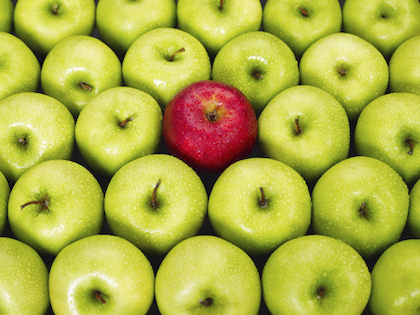unique
An absolute word. Adjective.
\ yu̇-ˈnēk \
- being the only one : SOLE
- being without a like or equal : UNEQUALED
- b: distinctively characteristic : PECULIAR
- able to be distinguished from all others of its class or type : DISTINCT
History and Etymology for unique
French, from Latin unicus, from unus one
“I may have been fired by the CIA, but I still moonlight for the Grammar Police. Uniqueis a unique word, and Madison Avenue illiterates to the contrary, it is not a pumped-up synonym for unusual… There’s no such thing as ‘most unique’ or ‘very unique’ or rather unique’; something is either unique or it isn’t, and damn few things are.”
“In a world of prayer, we are all equal in the sense that each of us is a unique person, with a unique perspective on the world, a member of a class of one.”
“The usage panel for the American Heritage Dictionary disapproves by 89 percent expressions like ‘rather unique’ or ‘very unique.’ The argument is that the word is an absolute adjective that cannot be qualified in any way. Because it goes back to Latin unus, meaning one, the argument goes, and means only, as in ‘his unique son,’ no degrees of uniqueness are possible.”
“Unique” is a unique word.
It’s the only word we have …
a word without synonyms.
If we change the word unique to mean unusual by giving it levels of gradation (e.g. unusual), it will no longer be unique, and we will have no single word that means “one of a kind.”
We have so many words to mean unusual or a variant of unusual. We have no other word that means unique — it’s a unique word.
Please use unique only as an absolute adjective without “levels” of uniqueness.




